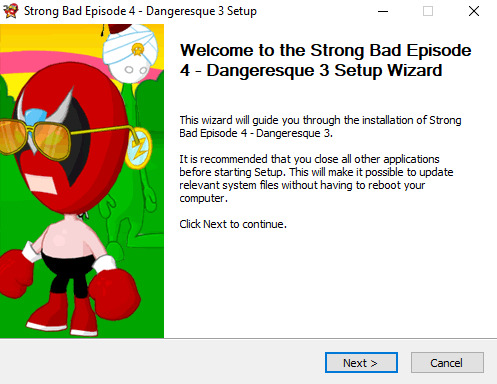#Distribution Software
Explore tagged Tumblr posts
Text
6 Ways eCommerce Platforms Simplify B2B Distribution

Imagine navigating the complexities of B2B distribution with ease and efficiency—this is the promise of modern B2B eCommerce platforms. The rise of B2B eCommerce platforms has emerged as a game-changer, offering a strategic advantage in an increasingly competitive landscape. These platforms are more than just a means to facilitate online sales; they are comprehensive ecosystems designed to streamline operations, enhance customer interactions, and consolidate multiple storefronts into a unified, efficient system. Embracing a B2B eCommerce platform is not just about keeping up with the times—it's about redefining the future of B2B distribution. Let's delve into how these platforms are empowering distributors to transform their business operations and achieve unparalleled success.
1. Centralized Product Management
One of the biggest challenges for B2B distributors is managing a vast array of products across multiple storefronts. B2B eCommerce platforms provide a centralized system where distributors can manage all their products in one place. This means they can easily update product information, adjust pricing, and manage inventory without the hassle of dealing with multiple systems. By centralizing product management, distributors can ensure consistency across all their storefronts, making it easier for customers to find what they need and trust the information they see.
2. Streamlined Order Processing
Order processing can be a time-consuming and error-prone task, especially when dealing with multiple storefronts. B2B eCommerce platforms streamline this process by integrating all orders into a single system. This allows distributors to quickly and efficiently process orders, reducing the likelihood of errors and delays. With all orders centralized, distributors can also gain better insights into their sales trends and customer preferences, enabling them to make more informed business decisions.
3. Enhanced Customer Experience
In the B2B world, providing a seamless and personalized customer experience is crucial. B2B eCommerce platforms enable distributors to offer a consistent experience across all their storefronts. Customers can easily navigate the site, find the products they need, and place orders without any hassle. Additionally, these platforms often come with features such as customer-specific pricing, personalized product recommendations, and easy reordering options, all of which contribute to a better customer experience. When customers have a positive and consistent experience, they are more likely to return and build a long-term relationship with the distributor.
4. Improved Data Integration and Analytics
Data is the backbone of any successful business strategy. B2B eCommerce platforms provide robust data integration and analytics tools that allow distributors to consolidate their storefronts and gain a comprehensive view of their business. These tools can integrate with existing ERP and CRM systems, ensuring that all data is up-to-date and accurate. Distributors can analyze this data to understand customer behavior, identify sales trends, and make data-driven decisions that drive growth. With improved data integration and analytics, distributors can operate more efficiently and stay ahead of the competition.
5. Scalability and Flexibility
As businesses grow, their needs change. B2B eCommerce platforms are designed to be scalable and flexible, allowing distributors to easily expand their operations without the need for significant investments in new infrastructure. Whether a distributor wants to add new product lines, enter new markets, or integrate with new sales channels, a robust eCommerce platform can support these changes seamlessly. This scalability and flexibility enable distributors to consolidate their storefronts while also positioning themselves for future growth.
6. Cost Efficiency
Managing multiple storefronts can be expensive, with costs associated with maintaining separate websites, systems, and staff. B2B eCommerce platforms offer a cost-effective solution by consolidating these operations into a single platform. This not only reduces the need for redundant systems and personnel but also lowers the overall cost of managing the business. Additionally, with automated processes and improved efficiency, distributors can save time and resources, allowing them to focus on more strategic initiatives that drive growth.
B2B eCommerce platforms are invaluable tools for distributors looking to consolidate their storefronts and streamline their operations. As the digital landscape continues to evolve, embracing a robust B2B eCommerce platform will be key to staying competitive and meeting the ever-changing needs of customers. Whether you’re a small distributor just starting out or a large enterprise looking to optimize your operations, a B2B eCommerce platform can help you achieve your business goals and drive long-term success.
Our Software Services:
Quotation Software | Sales Order Management Software | Purchase Order Management Software | Invoicing Software | Pick Pack Ship Software | Payment Processing Software
#distribution software#b2b ecommerce#b2b lead generation#b2b marketing#bmobile route software#bmobileroutesoftware#united states#ecommerce platform
0 notes
Text

Distribution ERP Software
Sage X3 ERP is the best food manufacturing software. It offers recipe- formula-based manufacturing designs for businesses in Middle East.
#greytrix middle east#erp software#sage erp#sage x3#food and beverage industry#distribution#distribution software
0 notes
Text

How mobile field sales app and distribution software integration gives powerful sales performance
Unlock unprecedented sales performance with seamless integration of cutting-edge mobile field sales apps and advanced distribution software. Elevate your sales team's efficiency, streamline operations, and enhance customer experiences through a harmonized ecosystem.
Website: https://www.entegratedsolution.com/how-mobile-field-sales-app-and-distribution-software-integration-gives-powerful-sales-performance/
0 notes
Text
The Backbone of FMCG: Unveiling the Power of Distributor Management Systems
Distributor Management Systems (DMS) is a comprehensive software solution designed to optimize and automate distribution processes, from inventory management to order processing and analytics. In this article, we delve into the key components and functionalities of DMS and highlight its instrumental role in driving operational excellence and improving relationships with distributors and retailers. Join us on this journey as we uncover how DMS revolutionizes the FMCG sector and empowers businesses to stay ahead in the competitive market landscape.
0 notes
Text
In the ever-evolving landscape of Consumer Packaged Goods (CPG) industries, efficient distribution management is crucial for success. A robust Distribution Management System (DMS) is critical in optimizing operations and enhancing supply chain management. Let’s explore the top 8 features that make a DMS indispensable for CPG businesses.
0 notes
Text

freebsd: the power to serve CUNT!
48 notes
·
View notes
Text
ok the second last chapter was the best one because in fairness it actually did address encoded biases in both generative and predictive AI datasets and violent outcomes for oppressed groups in policing, healthcare, resource distribution, etc. and it did make mention of the horrific exploitation of workers in the neocolonial world in cleaning datasets, moderating virtual spaces, tagging, transcribing, and other digital sweatshop work.
but the problem is that the solutions offered are more women in STEM and better regulations... with the end goal always always always of accepting and facilitating the existence and forward motion of these technologies, just with more equitable working conditions and outcomes. early in the book, there's a great aside about how generative AI being used for new forms of image based sexual abuse causes incredible harm to those who experience misogyny and also is gobbling up energy and water at exponential rates to do so. but that environmental angle gets a few sentences and is never spoken of again in favour of boosting a kinder, more inclusive inevitable AI inundated future.
but like — the assumption that these technologies are both inevitable and reformable makes all the solutions offered untethered and idealistic!
profit is mentioned throughout the book, but the system of profit generation isn't mentioned by name once. so the problems of some machine learning systems get attributed to patriarchy and profit as if those two things are separate and ahistorical, instead of products of class society with its most recent expression in capitalism.
but yeah I mean it's not presenting itself as a Marxist analysis of AI and gendered violence so I know I'm asking it to do things it was never setting out to do. but still, it's wild how when you start to criticise technology as having class character it becomes glaring how few critiques of AI, both generative and predictive, are brave enough to actual state the obvious conclusions: not all technology can be harnessed to help the collective working class. some technology is at its root created to be harmful to the collective wellbeing of the working class and the natural ecosystems we are in and of.
technology isn't inherently agnostic. it isn't neutral and then progressive if harnessed correctly, and that idealist vision is only going to throw the people and entities capitalism most exploits into the furnace of the steam engine powering the technocapitalist death drive.
you can't build a future without misogyny using tools designed to capitalise on increasingly granular data gathered from ever-increasing tools of surveillance, to black-box algorithmic substitutions for human interaction and knowledge, to predate on marginalised communities to privatise and destroy their natural resources and public services, and to function on exploited labour of unending exposure to the most traumatising and community-destroying content. and we have to be ruthless in our analysis to determine which AI technologies are designed and reliant on those structures — because not all are!
you have to be brave enough to go through all that analysis and say the thing: if we want a future of technological progress that is actually free from misogyny, we can't build it with those tools that are built by and for the capitalist class and are inextricable from their interests and the oppression of other groups of people that capitalism needs to perpetuate.
some technology is not fit for purpose if our purpose is collective liberation.
#the old yarn: none of us are free unless all of us are free#anyway idk i read it because a comrade was reading it and this is my beat so i wanted to know what the take was#and i just think where it did focus on actual widespread and ubiquitous predatory and exploitative gen ai tech —#like gen ai relationship chat bots‚ gen ai deepfake software‚ and gen and predictive ai embedding in societal infrastructure —#it was at its best. but the sex robot obsession felt like it was there to juice up the book#bc talking about biases in automated welfare distribution isn't sensational enough?#like again yeah it was horrific imagery but devoting a full third+ of the book to it was a choice
2 notes
·
View notes
Text
Share Your Anecdotes: Multicore Pessimisation
I took a look at the specs of new 7000 series Threadripper CPUs, and I really don't have any excuse to buy one, even if I had the money to spare. I thought long and hard about different workloads, but nothing came to mind.
Back in university, we had courses about map/reduce clusters, and I experimented with parallel interpreters for Prolog, and distributed computing systems. What I learned is that the potential performance gains from better data structures and algorithms trump the performance gains from fancy hardware, and that there is more to be gained from using the GPU or from re-writing the performance-critical sections in C and making sure your data structures take up less memory than from multi-threaded code. Of course, all this is especially important when you are working in pure Python, because of the GIL.
The performance penalty of parallelisation hits even harder when you try to distribute your computation between different computers over the network, and the overhead of serialisation, communication, and scheduling work can easily exceed the gains of parallel computation, especially for small to medium workloads. If you benchmark your Hadoop cluster on a toy problem, you may well find that it's faster to solve your toy problem on one desktop PC than a whole cluster, because it's a toy problem, and the gains only kick in when your data set is too big to fit on a single computer.
The new Threadripper got me thinking: Has this happened to somebody with just a multicore CPU? Is there software that performs better with 2 cores than with just one, and better with 4 cores than with 2, but substantially worse with 64? It could happen! Deadlocks, livelocks, weird inter-process communication issues where you have one process per core and every one of the 64 processes communicates with the other 63 via pipes? There could be software that has a badly optimised main thread, or a badly optimised work unit scheduler, and the limiting factor is single-thread performance of that scheduler that needs to distribute and integrate work units for 64 threads, to the point where the worker threads are mostly idling and only one core is at 100%.
I am not trying to blame any programmer if this happens. Most likely such software was developed back when quad-core CPUs were a new thing, or even back when there were multi-CPU-socket mainboards, and the developer never imagined that one day there would be Threadrippers on the consumer market. Programs from back then, built for Windows XP, could still run on Windows 10 or 11.
In spite of all this, I suspect that this kind of problem is quite rare in practice. It requires software that spawns one thread or one process per core, but which is deoptimised for more cores, maybe written under the assumption that users have for two to six CPU cores, a user who can afford a Threadripper, and needs a Threadripper, and a workload where the problem is noticeable. You wouldn't get a Threadripper in the first place if it made your workflows slower, so that hypothetical user probably has one main workload that really benefits from the many cores, and another that doesn't.
So, has this happened to you? Dou you have a Threadripper at work? Do you work in bioinformatics or visual effects? Do you encode a lot of video? Do you know a guy who does? Do you own a Threadripper or an Ampere just for the hell of it? Or have you tried to build a Hadoop/Beowulf/OpenMP cluster, only to have your code run slower?
I would love to hear from you.
13 notes
·
View notes
Text

Tired of paper piles? 🚫 Go paperless with Magtec ERP Software! 💻 Streamline your workflow and boost efficiency. It's time to embrace the digital future.
#erp#business#software#management#automation#enterprise#resources#planning#solution#system#cloud#industry#finance#accounting#supplychain#inventory#crm#hr#manufacturing#distribution#retail#healthcare#education#hospitality#smallbusiness#mediumenterprise#largeenterprise#magtecerp#magtec#magtecsolutions
3 notes
·
View notes
Text


Telltale Games | Strong Bad's Cool Game For Attractive People install wizards for demos of episodes 4 and 5
#floof uploads#telltale games#sbcg4ap#homestar runner#strong bad#dangeresque#renaldo#2009#demos#install wizards#web archive#software archive#these were found on the pc gamer magazine cd roms btw#idk if they were distributed anywhere else
18 notes
·
View notes
Text
Optimize Your Ceramic & Faucets Business with ERPNext Solutions by Sigzen
ERPNext offers an ideal solution for businesses in the ceramics and faucets industry, delivering a tailored, robust platform designed to streamline various operational processes. This powerful ERP software facilitates seamless management of inventory, production, sales, and procurement, while also providing comprehensive financial management tools. Its ability to integrate and automate these key…

View On WordPress
#business optimization#Ceramics Industry#Digital Transformation#ERP Software#ERPNext#Faucets Business#Financial Management#Inventory Management#Production Planning#Sales Distribution#Sigzen Technologies
3 notes
·
View notes
Text
Jfc Windows, forced updates are one thing but unannounced forced updates that automatically install and reboot my computer overnight are something else entirely, like actively hostile to the user. I frequently leave calculations running overnight when I leave the office so that they're done when I get back in the morning, but now I can't trust my computer to not shut itself down and kill the calculation. Clown shoes operating system.
#microsoft fuck off dont touch my stuff#i have to use windows for work bc we use some proprietary software thats only distributed for windows#so like theres no solution#i dont know when the updates are coming and i couldnt stop them even if i did#but at least id know not to run a job that particular night instead of coming in the next day to see it made negative progress#fuuuuuuuuuck why cant everything just be linux and easy#windows 11 hatepost#science is fun and rewarding#shapoopy says
4 notes
·
View notes
Text
Revolutionize Your Operations with Distribution Management Software | Rapidor
Explore the power of cutting-edge Distribution Management Software from Rapidor. Enhance efficiency, optimize logistics, and streamline your supply chain processes seamlessly. Learn how our software can transform your distribution workflows.
Visit https://www.rapidor.co/category/distribution-management-software/?utm_source=google&utm_medium=organic+search
#distributor management system#distribution management software#distributor management system fmcg#distribution software
0 notes
Text
Distribution management software is responsible for efficiently overseeing the movement of products between wholesalers, retailers, and customers within the supply chain. It streamlines and automates various aspects of distribution, including inventory management, order processing, logistics, and supply chain operations. The solution also analyzes factors like customer demand fluctuations, optimizes transportation, and assesses the potential consequences of shipment delays.
0 notes
Text
I'm a software developer and there's an incredibly insightful parallel to distributed computing design here that I don't feel like drawing out too much, but basically it's 10,000x simpler to just have a bagillion copies of the same simple computer that you spend a lot of time making real good (like doing single arrow shots) than trying to make one really complicated extra powerful computer that does all the work in one place (like shooting three arrows at once).
We’ve been here before, but I have a new technique this time!!
Please support these videos on Patreon if you can!
4K notes
·
View notes
Text
In the fast-paced FMCG industry, success depends on precision, speed, and control. From real-time inventory tracking and multi-channel sales to GST compliance and demand forecasting, FMCG retailers and distributors need more than just billing software. They need a robust, end-to-end FMCG software solution built for scale, accuracy, and agility.
LOGIC ERP, one of India’s best FMCG ERP Software Solution providers since 1993, delivers exactly that.
With powerful modules tailored for FMCG wholesalers, retailers, and manufacturers, LOGIC ERP FMCG retail software helps businesses gain operational clarity and stay competitive in a rapidly evolving market.
#fmcg software#fmcg retail software#fmcg erp software#fmcg distribution software#fmcg software solutions
0 notes